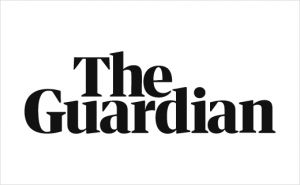
(This post originally appeared on The Guardian)
Last month, a popular restaurant in Chicago drew attention after adding a 26% “Covid surcharge” to customers’ checks, in order to offset the rising costs of food supplies brought about by shortages and supply interruptions.
“We are just opening up, so we really need to be able to make ends meet,” the manager of Harold’s Chicken on Broadway insisted to a local TV station. “We’re actually trying to figure out how else we can make up for those losses that we’ve had so far.” Admirable reasons. And, for many small businesses, not an unpopular position.
Although the surcharge from Harold’s seems a little extreme, the idea of charging extra to cover the cost of protective equipment, sanitation and rising food prices is starting to catch on. Restaurant owners in Florida, Las Vegas and even Missouri are also charging extra Covid fees ranging anywhere from three to four percent. But unfortunately, doing so can come at a bigger cost: the loss of customers.
According to one survey, while 38% of customers said it’s reasonable for restaurants to add a surcharge to cover pandemic-related prices, another 32% said that if they encountered such a practice, they would take their business elsewhere. “It’s always a risk to advertise raising prices, and that’s what a surcharge does,” Rich Shank, vice-president of the firm that conducted the above research, told Restaurant Business.
It’s not just restaurants that are implementing coronavirus surcharges. Medical practices and dental offices are also taking up the practice. One dentist told NBC News that the cost of cost of new face masks, which used to be about $6 for 20, is now $6 for just a single mask. Medical and dental offices are having to purchase more face shields, sneeze guards, air filtration systems and additional sanitation services to ensure their practices are completely safe for patients. “We are just as frustrated with all of these, too,” the dentist said. “But as a small business we had to reassess things.”
So is this a good idea? Should your business also be charging an additional fee to make up for the losses and extra costs you’ve incurred because of the pandemic? Of course it is. But what’s not a good idea is how these small business owners are doing it. Go ahead and charge. But there are other ways to get money back without calling attention to the practice.
Shank believes that a restaurant will be “better served by doing their homework on what current items are undervalued on their menu from a consumer perception standpoint, and targeting those items for increases” and then “running a trade-off analysis that assumes you will force some percentage of customers to trade-down to cheaper products in order to make sure that the register rings up in their favor at the end of the day”.
That’s a good point. But I would even go one step further: depending on your resources and available time, just simply skip the analysis and raise your prices a few percentage points to cover those additional costs. Maybe you have to get new, temporary menus printed or adjust your fees. Just don’t make a big deal out of it. Will your customers scream and shout over a 3% increase? Nah, they probably won’t even know the difference. A hamburger that costs $10 will now cost $10.30. Who’s going to care?
Is this ethical? Of course it is. You don’t break out all your other costs as separate “surcharges”. I don’t have to know what you’re paying your cook, your wait staff and your food supplier. I also don’t need to know what you’re paying for additional safety supplies related to Covid. These are all costs of doing business. Just charge what you’re going to charge in one price and don’t bring attention to it.
Hopefully, as those pandemic-related expenses decrease, you can roll back your prices. But then again, if your customers keep buying and no one complains you may be able to add a few extra bucks to your bank account as profits. Considering the suffering so many small businesses have incurred over the past few months, this could actually turn into a longer-term benefit.

